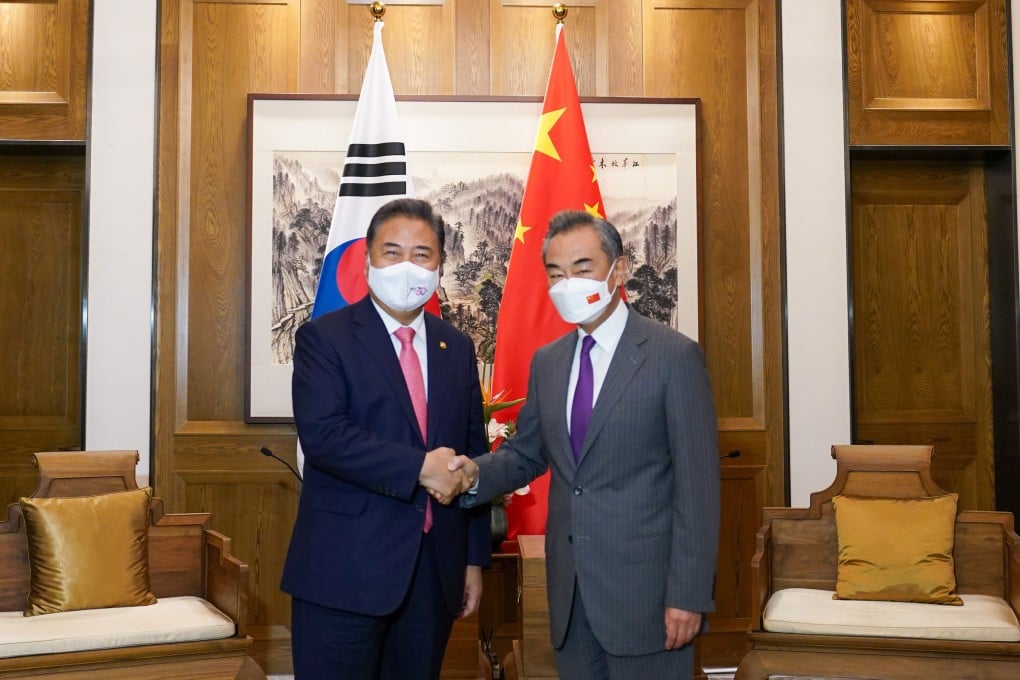China, South Korea make supply chain pledge as Seoul eyes US chip alliance
- Meeting between foreign ministers is the first high-level visit by a South Korean official to China since South Korean President Yoon Suk-yeol took office in May
- The vow comes amid concerns that Seoul may risk business ties with Beijing by joining ‘Chip 4’ group with US, Taiwan and Japan

The pledge was made on Tuesday when Chinese Foreign Minister Wang Yi met his South Korean counterpart Park Jin in the eastern Chinese city of Qingdao.
“Globalisation has encountered adverse currents, and some countries have politicised the economy … undermining the stability of global production and supply chains,” Wang was quoted as saying in a Chinese foreign ministry statement.
The South Korean foreign ministry said the countries agreed to increase high-level communication on supply chain issues, climate change cooperation and cultural exchanges.
Both Beijing and Washington have stepped up efforts to consolidate their own diplomatic alliance networks after US House Speaker Nancy Pelosi defied Beijing’s warnings and visited Taiwan, a self-ruled island that mainland China considers as part of its territory to be taken back under its control, by force if necessary.
